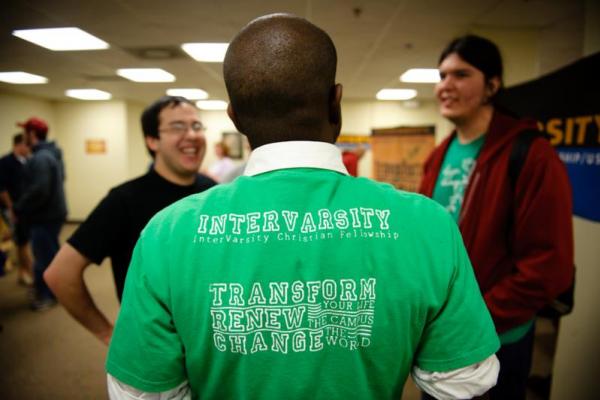Last week, InterVarsity Christian Fellowship was derecognized at California state schools, barring the group’s access to on-campus meeting rooms, school funds, and other student functions. While InterVarsity welcomes all to participate in its campus-based student groups, it was derecognized because their leadership policy, which requires students in positions of leadership to sign a statement of belief, conflicted with state-mandated nondiscrimination policies.
From the standpoint of religious liberty in this secular age, it’s hard to get around the troubling nature of this policy. Part of me squirms and rolls my eyes at the increasing irony of the intolerance of tolerance. Why can’t we — as a religious community born of a 2,000-year-old tradition — retain some beliefs that have become out-of-style in the modern academy? The principle irks me: Shouldn’t Christian groups be allowed to require that their leaders are Christian?
On the other hand, might this be another example of evangelicalism prioritizing doctrines over compassionate love of the world? I mean, can’t InterVarsity recognize why nondiscrimination policies exist, stop complaining about persecution, welcome their LGBTQ members into leadership, and get on to the real business of redeeming creation to the glory of God? Is this yet another haunting specter of fundamentalism clinging to its evangelical host?
Given that the crux of this issue revolves around what InterVarsity’s student leaders ostensibly do or do not believe, perhaps this is an opportunity for Christians to (re)consider their affinity for “belief statements.” Are they really that important?
Now, wait — before you throw your hands up and shout “liberal postmodern relativism,” let me explain.
Drawing on sociologist Pierre Bourdieu, Christian philosopher James K.A. Smith writes in Imagining the Kingdom that belief is not primarily “assent to propositions but rather a functional, enacted trust and entrustment to a context and a world.”
In other words, it is not primarily our intellectual assent to a correct doctrine that constitutes belief. To our enlightened modern minds, this may sound frightening. What we think doesn’t matter? Aren’t propositional belief statements the very bulwark which has preserved Christian orthodoxy against centuries of secular onslaught?
But consider: what does it really mean to believe in something?
Read the Full Article

